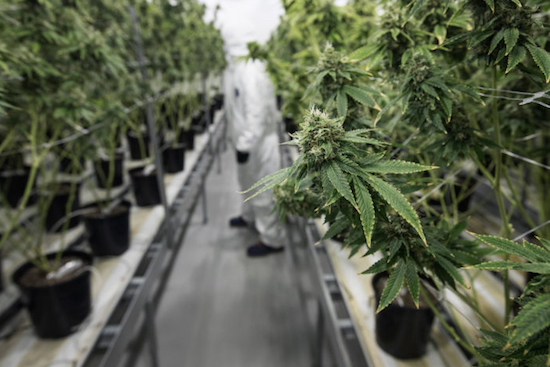Brooklynites sound off on what legal weed could look like

While New York state seems likely to go the way of nine states and the District of Columbia in legalizing marijuana for recreational use, plenty of deliberation is happening first. Tuesday night was Brooklyn’s turn to sound off about how legal marijuana should be controlled — and who should profit from it.
Last month, shortly after the publication of a multi-agency study that concluded the “positive effects” of marijuana legalization in New York “outweigh the potential negative impacts,” Gov. Andrew Cuomo pieced together a workgroup tasked with drafting legislation for a regulated, adult-use marijuana program. One of their initial steps is to hold 17 “listening sessions” across the state, giving local politicians and the public a chance to offer their input. One of those listening sessions took place last night at LIU Brooklyn, where about 200 attendees packed into the campus’s Kumble Theater.
The state’s study estimated that if recreational marijuana were to be legalized, nearly 1.3 million New Yorkers might purchase pot during the program’s first year, generating up to $678 million in tax revenue, depending on the pricing and taxation rate. (New York has legalized medical marijuana under relatively strict conditions; Brooklyn’s first dispensary is expected to open later this year.)

Brooklyn Boro
View MoreNew York City’s most populous borough, Brooklyn, is home to nearly 2.6 million residents. If Brooklyn were an independent city it would be the fourth largest city in the United States. While Brooklyn has become the epitome of ‘cool and hip’ in recent years, for those that were born here, raised families here and improved communities over the years, Brooklyn has never been ‘uncool’.